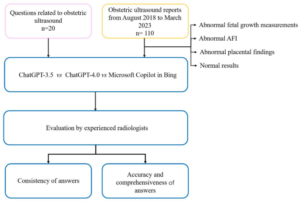Microsoft Enhances Enterprise Agents with Advanced Reasoning and Introduces a Data Analyst Agent That Surpasses Rivals

Microsoft’s Advancement in Enterprise AI Agents
Microsoft is making significant strides in the realm of enterprise artificial intelligence (AI) with its Copilot Studio and an expansive agent ecosystem. The tech giant recently introduced several new features aimed at enhancing how businesses leverage AI for various tasks.
New Capabilities in Copilot Studio
During a recent announcement, Microsoft showcased two major improvements for its Copilot Studio platform:
- Deep Reasoning: This new ability allows AI agents to engage in complex problem-solving through systematic thought processes.
- Agent Flows: These flows combine AI flexibility with structured business process automation, creating a more efficient operational environment.
In addition, Microsoft introduced two specialized agents for Microsoft 365 Copilot: the Researcher and Analyst agents. According to Charles Lamanna, Microsoft’s Corporate Vice President, organizations are increasingly employing thousands of these agents to streamline operations across various tasks.
Features of the Analyst Agent
The Analyst agent stands out among AI offerings. While it shares some features with rivals like OpenAI’s Deep Research, it also incorporates a distinct functionality tailored for data analysis. Designed as a personal data scientist, the Analyst can:
- Process various data formats, including Excel spreadsheets, CSV files, and tables within documents.
- Generate insights through code execution and visualizations without users needing extensive technical knowledge.
This capability is particularly beneficial for tasks that usually require extensive data preparation, such as financial forecasting and operational reporting. Lamanna emphasized that the Analyst agent goes beyond off-the-shelf models, being specifically tuned and trained to fit enterprise workflows.
Deep Reasoning in Action
Microsoft’s deep reasoning feature allows AI agents to extend their abilities, going beyond simply completing tasks to addressing complicated analytical challenges. By integrating advanced reasoning models, these agents can manage less clear business scenarios more effectively.
For instance, one telecommunications company successfully utilized deep reasoning agents to assemble comprehensive responses to Requests for Proposals (RFPs), pulling in data from various internal documents. Additionally, Thomson Reuters is employing similar capabilities for due diligence during mergers and acquisitions by processing unstructured documents for insights.
Introducing Agent Flows
The concept of agent flows signifies a new era in process automation. By merging strategic business rules with AI reasoning, Microsoft enhances traditional robotic process automation (RPA). Companies today often want a balance—sometimes requiring strict adherence to business rules while at other times needing flexibility in AI decision-making.
For example, Pets at Home, a pet supplies retailer in the U.K., has utilized this approach for fraud detection, reportedly saving over a million pounds. Likewise, Dow Chemical achieved significant savings in transportation and freight management through similar AI optimization practices.
Integrating with Microsoft Graph
A crucial element of Microsoft’s strategy lies in its integration with Microsoft Graph, which provides a detailed mapping of workplace interactions, including data from emails, documents, and business-related information. This integration ensures that AI agents operate with contextual awareness, enhancing their effectiveness compared to more generic models.
Lamanna noted that Microsoft Graph’s capacity for improving relevance based on user engagement allows agents to use the most current and authoritative documents, thus enhancing the quality of insights they provide.
Accessibility and Enterprise Adoption
To ensure widespread usability, Microsoft designed these advanced features to be accessible to organizations with varying levels of technical expertise. Agents are integrated directly into Copilot, allowing users to give commands in natural language without the need for complex programming skills.
Moreover, Copilot Studio provides a low-code environment for custom agent creation, making it easier for anyone, irrespective of technical background, to build their agents. This focus on accessibility has led to rapid adoption, with over 100,000 organizations reportedly using Copilot Studio and creating more than 400,000 agents in just the last quarter.
The Competitive Landscape for Enterprise AI
While Microsoft holds a leading position in deploying enterprise agents, competition is heating up. Companies like Google and OpenAI are also advancing their AI capabilities, with Google broadening its Gemini offerings and Amazon launching its own AI agent, Amazon Q.
Despite this growing competition, Microsoft maintains its edge through its comprehensive integration of various AI features with established workplace tools. The emphasis on actual business outcomes, alongside collaboration with leading reasoning model providers, solidifies its position as a front-runner in the enterprise AI landscape.




